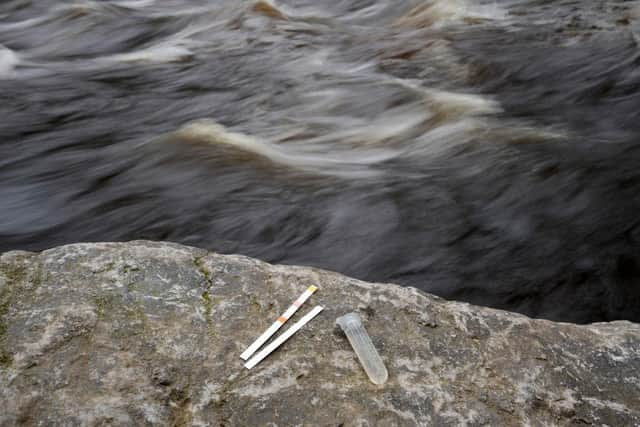Hours that Northumbrian Water released sewage into Northumberland waterways more than doubles
and live on Freeview channel 276
Data from the Environment Agency shows sewage from storm overflows was flowing into water bodies in Northumberland for 74,971 hours in 2023, during 10,390 spills.
This was up from 33,145 hours recorded the year before, when there were 7,382 spills in the area.
Advertisement
Hide AdAdvertisement
Hide AdAll of these storm overflow facilities, used when the water system becomes overloaded such as after heavy rain or from problems with the sewage network, are operated by Northumbrian Water.


A spokesperson for Northumbrian Water said: “2023 was one of the wettest years since storm overflow data has been available, with rainfall for the North East around 35% above the amount recorded in 2022. Storm overflows are designed to spill when rainfall is heavy.
“As a result of this wet weather, the data for 2023 shows an increase in the operation of storm overflows to prevent customers’ homes and businesses from flooding.
“We share our customers’ passion for our region’s coastlines and rivers and have a clear plan of investment to reduce the reliance on the operation of storm overflows in future.
Advertisement
Hide AdAdvertisement
Hide Ad“The results show that we have some of the lowest amount and duration of spills in the country. As well as this, we can also confirm that we did not have any serious pollution incidents throughout the whole of 2023.”
The spokesperson added that £1.7bn will be invested by Northumbrian Water between 2025 and 2030 in an environmental programme to stop storm overflow spills.
Natalie Younes, the Liberal Democrat candidate for North Northumberland at the next election, called for privatised water companies to be made into public benefit companies, bonuses for water bosses banned until discharges end, a new water regulator with greater powers, and for the Environment Agency to be better equipped to undertake inspections.
She said: “The detail behind these shocking headlines shows discharges to the Wansbeck increased from 292 to 552, in the Aln from 265 to 439, in the Lower Coquet from 482 to 812, and along the Berwick to Alnmouth coast from 357 to 561.
Advertisement
Hide AdAdvertisement
Hide Ad“We may have had a wet winter, but this is precisely the weather predicted by climate scientists years ago. The government, the regulator Ofwat, and the water companies have all been asleep at the wheel for far too long.”
Across England there was a massive rise in both the number of spills and how long sewage was discharged for.
Last year 3.6m hours were recorded, with less than 1.8m hours in 2022, while the number of spills rose from 301,000 to 464,000.
James Wallace, chief executive of campaign group River Action, said water companies have "run amok" with their customers' money.
Advertisement
Hide AdAdvertisement
Hide AdHe said: "The scale of the discharges by water companies is a final indictment of a failing industry.”
The overflow figures were described as "disappointing" but "sadly not surprising" by the Environment Agency’s director of water, Helen Wakeham.
She said: "We are pleased to see record investment from the water sector, but we know it will take time for this to be reflected in spill data. It is a complex issue that will not be solved overnight."